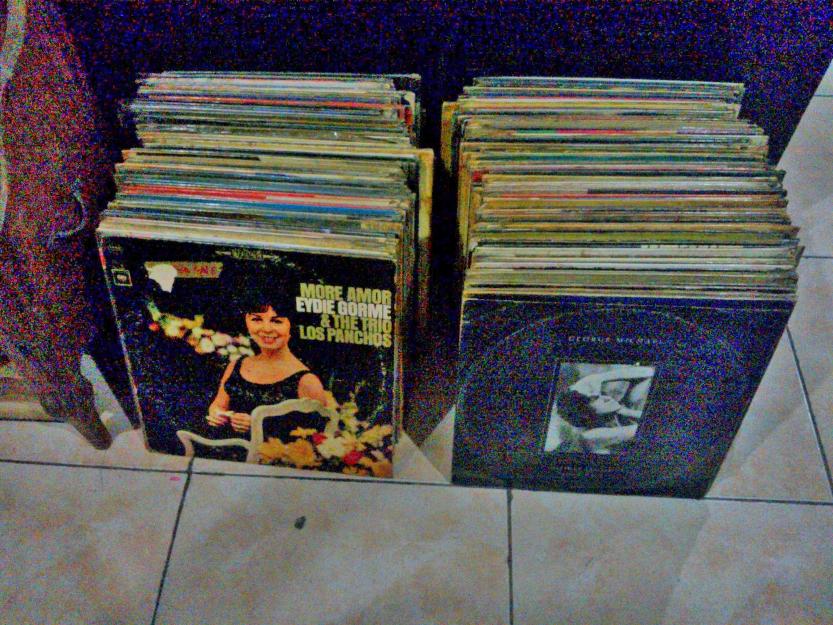For our younger devotees – and everyone knows there’s nothing a 17-year-old would rather do than read about personal finance – it might be hard to comprehend how primitive music retailing was just a few years ago. You had to physically walk into a store, then pay the equivalent of about $20 in 2013 currency to purchase an album with maybe 45 minutes’ worth of music. Most of which you hadn’t heard before, because the only outlets that existed for sampling music were your local radio stations, and they weren’t about to play more than a track or two (if that) from a typical album. Which means that if you wanted to hear something from any artist less popular than Michael Jackson or Whitney Houston, you were likely buying that artist’s music sound unheard.
So if you were a legitimate lover of a particular genre or artist, as opposed to someone who just had to get that Dave Matthews Band song your friend played at her wedding, ingesting music wasn’t a cheap pursuit. Say you wanted a B-side or a bonus track by one of your favorite artists, from a Japanese or European edition of an album that North Americans received only a diminished version of. You could find an “import” store, or the import section of a megastore, and in some cases end up paying $25 (again, 2013 equivalents) for what was essentially a single song. Nor was everything released on CD, which meant that your choice of format was sometimes between the Scylla of an easily scratchable vinyl LP and the Charybdis of a medium-fidelity cassette. Both of which would lose clarity with repeated listenings. Come to think of it, it’s something of a miracle that the recorded music industry even existed and that we didn’t just sing and whistle to ourselves instead.
Fast-forward to CDs becoming the default format for music, and fast-forward beyond that to the realization that if music can be digitally transferred to polycarbonate plastic, it can be saved as a transferable digital signal and copied infinitely. From there to Napster and its competitors, and ultimately iTunes, the world’s largest music store. Earlier this year iTunes celebrated its 25 billionth music download, this on a planet with only 7 billion people, most of whom don’t exactly have regular and fast online access.
iTunes sells most tracks for 99¢, occasional tracks for 69¢, and “premium” tracks (e.g. each one off Kanye West’s new album, which debuted at #1 on Billboard last week) for $1.29. Buy Kanye’s entire 10-track album on iTunes and you’ll pay a dollar less than if you’d bought each track individually.
You can do better. We recently discovered Russian (we think) sites Iomoio (pronounced ?) and Megaboon, whose catalogs dwarf iTunes’ and whose prices look like misprints.
That Kanye West album? 80¢ on Megaboon. That’s not a typo. Eighty American cents. It’s recorded at 336 kbps, which is considerably greater than iTunes’ 256 kbps default. You can even buy lossless files, which sell for the staggering sum of 30¢ apiece on Megaboon and will eat up much more of your storage.
How do they do it? We have our notions, but this is not our concern. There’s a Cuban joint down the street that sells the greatest empanadas we’ve ever tasted, thousands of miles from Cuba, and for astonishingly low prices, but it would take monstrous chutzpah on our part to ask the waitress why the prices were so low. We’re pretty sure that no Gabonese miners were injured nor Chinese factory workers driven to defenestration while procuring the mp3 files of Dwight Yoakam’s latest album, and that’s where our moral obligation ends. You people who look askance at the factors that enter into a good price can keep your world-weary concern to yourselves. We’re trying to spend less money than we otherwise would.
Iomoio certainly isn’t as slick nor as corporate as iTunes. The former’s onscreen copy is written in fractured but still understandable English. (You know, like most of our Carnival of Wealth submissions.) Songs download as fast as they do on iTunes, and while the Russian sites might not load as quickly, the benefits grossly outweigh the costs.
Are the services legitimate? The music downloaded fine, complete with artwork and metadata, and there are no digital rights management issues. Once they had our credit card information, they did nothing nefarious with it. We had one minor customer service issue – a ZIP file that wouldn’t unzip – reported it, and they got back to us within a day to say they’d fixed the problem. Which they had.
You have to give them a credit card deposit of at least $30. For that you get $40 worth of music, so these downloads really cost more like 6¢ apiece; even less if you leave a larger deposit. Iomoio and Megaboon are so cheap that we can’t understand why iTunes retains its dominant market position.
Actually, who are we kidding? Were Iomoio and Megaboon to get too big, Apple would press on the United States government to flex its muscle. Much in the same way that the movie industry’s trade association complained to the White House about illegal downloading, and within weeks the FBI was flying to the other side of the world to capture an innocent Kim Dotcom, freeze his assets, throw him in jail, and do it all with the implicit backing of a foreign government. Until Iomoio and Megaboon get that large and that notorious, happy downloading.




